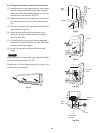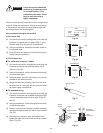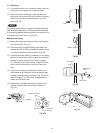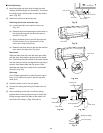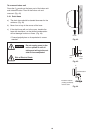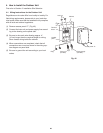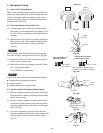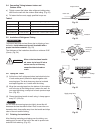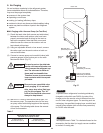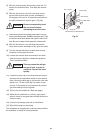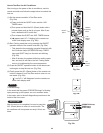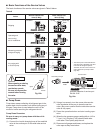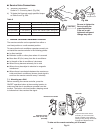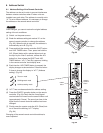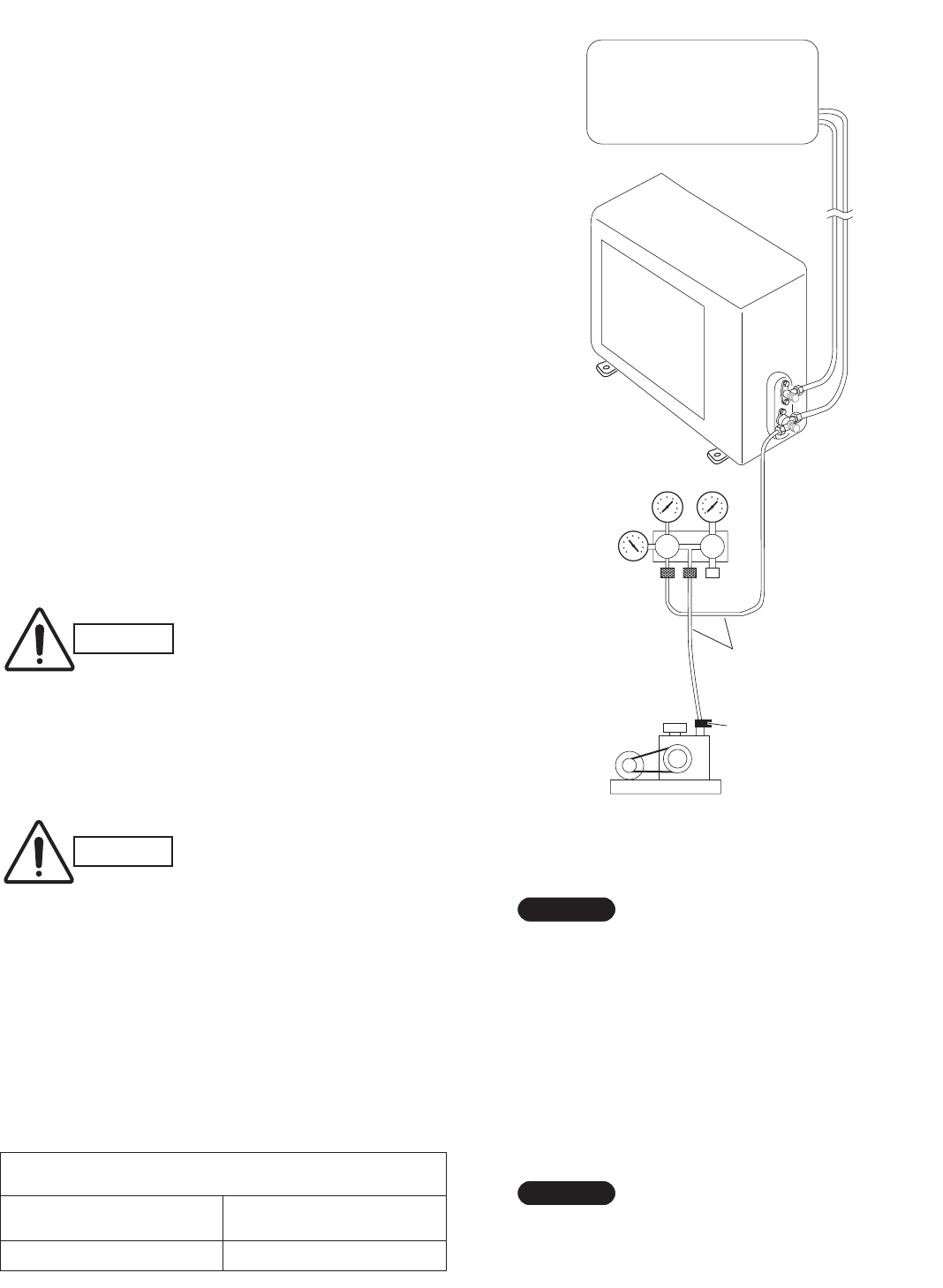
23
6. Air Purging
Air and moisture remaining in the refrigerant system
have undesirable effects as indicated below. Therefore,
they must be purged completely.
pressure in the system rises
operating current rises
cooling (or heating) efficiency drops
moisture in the air may freeze and block capillary tubing
water may lead to corrosion of parts in the refrigerant
system
Air Purging with a Vacuum Pump (for Test Run)
(1) Check that each tube (both narrow and wide tubes)
between the indoor and outdoor units have been
properly connected and all wiring for the test run
has been completed. Note that both narrow and
wide tube service valves on the outdoor unit are
kept closed at this stage.
(2) Using an adjustable wrench or box wrench, remove
the valve caps from the service valve on both nar-
row and wide tubes.
(3) Connect a vacuum pump and a manifold valve (with
pressure gauges) to the service port on the wide
tube service valve. (Fig. 57)
(4) With the “Lo” knob of the manifold valve open, run
the vacuum pump. The operation time for the vacu-
um pump varies with tubing length and the capacity
of the pump. The following table shows the amount
of time for evacuation:
Table 7
HiLo
Indoor unit
Outdoor unit
Manifold valve
(Exclusively for R410A)
Pressure
gauge
Vacuum pump
Charging hose
(Exclusively for R410A)
Vacuum pump adapter
(Exclusively for R410A)
(with reverse flow prevention)
Fig. 57
CAUTION
Be sure to use a manifold valve
for air purging. If it is not avail-
able, use a stop valve (field sup-
ply) for this purpose. The “Hi”
knob of the manifold valve must
always be kept closed.
The required time in Table 7 is calculated based on the
assumption that the ideal (or target) vacuum condition
is around 10 mmHg abs.
NOTE
Required time for evacuation when
100 liter/h vacuum pump is used
If tubing length is If tubing length is
less than 33 ft. (10 m) more than 33 ft. (10 m)
10 min. or more 15 min. or more
CAUTION
The service port on the wide tube
service valve uses a Schrader core
valve to access the refrigerant sys-
tem. The valve core is similar to
those used in automobile tires.
Therefore, be sure to use a vacuum
hose connector which has a push-
pin inside.
To prevent other refrigerants from being mistakenly
charged to units which use R410A, the size of the
charge port on the service valve is different from the
one for other refrigerant types. For servicing such as
recharging, the specified charging hose, manifold and
vacuum pump adapter (with reverse flow prevention)
for R410A must be used.
NOTE



